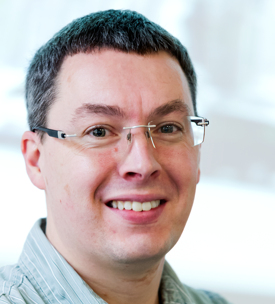“ Developing high performance materials for hydrogen production in solid oxide technologies”
Prof. Stephen J. Skinner
Department of Materials, Imperial College London, Exhibition Road, London, SW7 2AZ, UK
Abstract
As the impact of climate change becomes ever more apparent it is clear that there is a pressing need to develop new high performance materials that will enable the transition to zero emission power production. One technology at the forefront of this transition is the solid oxide cell (SOC) based on functional ceramic layers, which in its mature form (fuel cell) can produce clean electrical energy, and in its emerging form (electrolysis), can produce green hydrogen, operating within the 500-800oC temperature window. To fully develop the technology there are several key materials challenges that have to be addressed, before the significant scale up and manufacture of stacks can be achieved. Here we will briefly address three key aspects: understanding and improving electrode performance through materials and microstuctural optimisation, developing novel active nanoparticle catalysts using low temperature exsolution routes and correlating surface chemistry of electrodes with non-equilibrium models. Each of these aspects is essential to understanding device durability and to extending stack lifetimes.
Professor Stephen Skinner, Ceres/RAEng Research Chair in Electrochemical Devices at Imperial College London leads the electroceramics group in the department of materials. His research interests lie in the development of new materials, particularly mixed conducting oxides, for electrochemical technologies such as solid oxide fuel cells and electrolysers, and in the characterisation of their structural and electrochemical properties. His work links the structure and chemistry of materials under realistic operating conditions using a suite of advanced tools including diffraction, microscopy and spectroscopy combined with isotopic labelling. He has authored >180 papers on this topic and contributed 7 book chapters and edited 2 books. He is a Fellow of The Royal Society of Chemistry, and the Institute of Materials, Minerals & Mining (IOM3). His achievements have been internationally acknowledged with the award of a Daiwa Adrian Prize, and IOM3 Kroll medal and prize. In March 2023 he was elected as a Fellow of the Royal Society of Edinburgh.
3 parvis Louis Néel - 38000 Grenoble
Accès : TRAM B arrêt Cité internationale
2nd floor- LMGP



